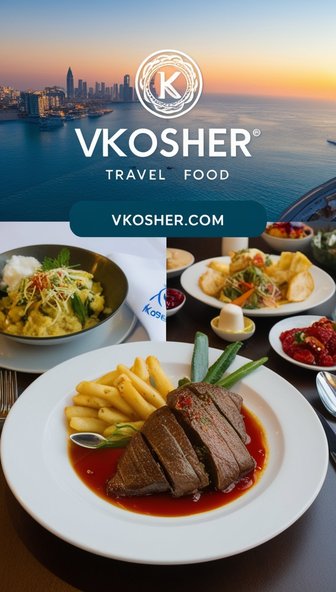Kosher and Punkt: Exploring the Intersection of Tradition and Modernity
Introduction
In a world increasingly defined by rapid change and cultural cross-pollination, the concept of "kosher" retains its profound significance. Originating from Jewish dietary laws, the term "kosher" encompasses a rich tapestry of religious, cultural, and social practices. The term "Punkt," while not directly related to kosher, plays a unique role in this discussion by highlighting the nuances of adherence and practice within diverse contexts. This exploration delves into the essence of kosher practices, their historical and cultural significance, and the ways in which they intersect with modern sensibilities, including the role of Punkt.
Understanding Kosher: A Deep Dive into Dietary Laws
The term "kosher" refers to a set of dietary laws derived from the Torah, specifically the books of Leviticus and Deuteronomy. These laws dictate what foods are permissible and how they should be prepared and consumed. At its core, kosher is about maintaining a level of spiritual and physical purity, as outlined by Jewish tradition.
Kosher laws are comprehensive and detailed, covering various aspects of food production and consumption. These laws include the types of animals that can be consumed, the prohibition of mixing meat and dairy products, and specific methods for slaughtering and preparing meat. The overarching aim is to create a distinct boundary between the sacred and the profane, ensuring that food consumption remains aligned with divine commandments.
One of the most recognized aspects of kosher practice is the separation of meat and dairy. This principle is rooted in the biblical commandment not to cook a young goat in its mother's milk, which has been interpreted to mean that meat and dairy should never be mixed. This separation extends to the use of different utensils, dishes, and even separate kitchen areas to ensure that there is no cross-contamination.
The Historical Evolution of Kosher Practices
Kosher practices have evolved significantly over time. In ancient times, these laws were largely about survival and health, with a focus on preventing the consumption of potentially harmful foods. As Jewish communities dispersed across the globe, kosher practices adapted to new environments and cultural influences, leading to variations in how laws were interpreted and applied.
The Middle Ages saw the development of extensive commentaries on the kosher laws, as Jewish scholars sought to clarify and expand upon the original texts. These interpretations played a crucial role in shaping modern kosher practices. The rise of the kosher certification industry in the 20th century further transformed how kosher food is produced and consumed, making it more accessible to a wider audience.
Today, kosher certification involves a rigorous process that includes inspections, audits, and adherence to specific standards set by certifying bodies. This process ensures that products labeled as kosher meet all necessary requirements and remain true to traditional practices. The presence of kosher symbols on food packaging has become a global standard, reflecting both the continuity and adaptability of kosher practices.
Kosher in the Modern World
In contemporary society, the concept of kosher extends beyond its religious roots. It has become a marker of quality and ethical considerations for many consumers. For some, choosing kosher products is a way to support humane treatment of animals, while others appreciate the rigorous standards associated with kosher certification.
The growth of the global food market has introduced new challenges and opportunities for kosher practice. With the increasing availability of kosher products, there is a greater emphasis on ensuring that these products meet both traditional and modern expectations. This includes addressing concerns about ingredient sourcing, manufacturing processes, and cross-contamination.
In addition, the rise of food innovation has led to the development of new kosher products and recipes. From kosher versions of popular snacks to gourmet kosher dining experiences, the food industry continues to explore creative ways to meet the demands of a diverse consumer base. This evolution reflects the ongoing relevance of kosher practices in a rapidly changing world.
Punkt: Navigating Adherence and Interpretation
"Punkt," a term that can be loosely translated as "point" or "dot," plays an intriguing role in the context of kosher adherence and interpretation. While not directly related to kosher laws, Punkt symbolizes the attention to detail and precision that characterize both traditional practices and contemporary interpretations.
In a broader sense, Punkt can be seen as a metaphor for the various "points" of adherence within the kosher framework. This includes the meticulous observance of dietary laws, the careful preparation of food, and the ongoing commitment to maintaining spiritual and ethical standards. Just as each Punkt represents a specific detail, each aspect of kosher practice contributes to the overall integrity of the tradition.
The concept of Punkt also highlights the diversity of practice within the kosher community. Different Jewish denominations and cultural groups may interpret and implement kosher laws in unique ways, reflecting a range of perspectives and practices. This diversity underscores the complexity of maintaining kosher adherence while navigating modern challenges and cultural influences.
Kosher and Punkt in a Global Context
The intersection of kosher and Punkt illustrates the broader themes of tradition and modernity. As Jewish communities continue to navigate the complexities of contemporary life, the principles of kosher practice and the metaphorical concept of Punkt provide valuable insights into the ways in which tradition can coexist with innovation.
In a globalized world, the influence of kosher extends beyond Jewish communities to reach a diverse audience. The principles of kosher practice resonate with individuals seeking to make informed choices about food and ethical consumption. Similarly, the concept of Punkt reflects the broader human quest for precision and meaning in a rapidly changing world.
The interplay between kosher and Punkt also highlights the role of cultural exchange in shaping modern practices. As different cultures and traditions come into contact, there is a growing appreciation for the nuances and significance of various practices. This exchange enriches our understanding of kosher and Punkt, allowing for a more nuanced appreciation of their roles in contemporary society.
Conclusion
The exploration of kosher and Punkt reveals a rich tapestry of tradition, adherence, and interpretation. Kosher laws represent a deep connection to religious and cultural heritage, while the concept of Punkt symbolizes the meticulous attention to detail that characterizes both traditional practices and modern adaptations.
As we navigate the complexities of a globalized world, the principles of kosher and the metaphor of Punkt offer valuable insights into the ways in which tradition and modernity can coexist. By appreciating the nuances of these practices, we gain a deeper understanding of their significance and relevance in our ever-changing world.




